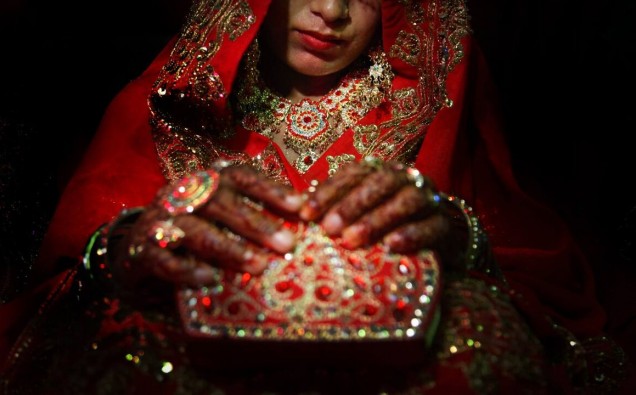A recent scam marriage between a 19-year-old Pakistani girl and a Chinese man has sparked an investigation into sex trafficking between Pakistan and China. The marriage was paid for entirely by the Chinese man and followed the wedding customs of Pakistan, so was approved by the parents of the bride, who was immediately moved to a bungalow in the Lahore area. However, being trapped in this neighbourhood and subjected to extensive physical and sexual abuse, it took the bride only a week to realise her marriage to be a scam and her husband to be a trafficker. For this specific bride, her rescue allowed her to escape ‘sexual servitude’, but for many others, this has not been the case.
This is the reality for 700 women a year, as they wed Chinese men with the promise of a good job on their arrival in China, but instead, get sold to the sex trade for twelve to twenty-five thousand dollars. The Chinese government have denied any allegation of Pakistani women being trafficked for prostitution, but the surge in Pakistani brides applying for year-long visas, and the two dozen Chinese nationals and local Pakistani middlemen being arrested in connection with sham marriages, seemingly suggests otherwise. It is obvious that these fake marriages are being used as a ‘garb’ for the sex trade. There is a clear and prominent issue of trafficking that cannot be denied.
This surging issue is a result of the easy movement between the two countries. Pakistan and China are close allies, and with a visa-on-arrival policy for Chinese nationals, it accommodates a quick journey for Chinese men into Pakistan to find themselves a ‘bride’. Whilst this easy movement is innocently fuelled by a necessity of Chinese men to find a bride outside of their imbalanced society, the hundreds and thousands of Chinese nationals flocking to Pakistan simply hide a multitude of sins. There still remains a prominent sex trade.
And this sex trade is only going to grow as China refuses to admit there is an issue, as Beijing continues to deny any allegations of prostitution or trafficking. Instead, the two nations, rather than addressing the surging problem, are placing their mutual friendship above eradicating the sex trade in a ‘trafficking hotspot’ of Asia. Prioritisation of a country’s relations above the human rights of its citizens, and complete denial of the issues is inhibiting any improvement.
By Grace Lea


















